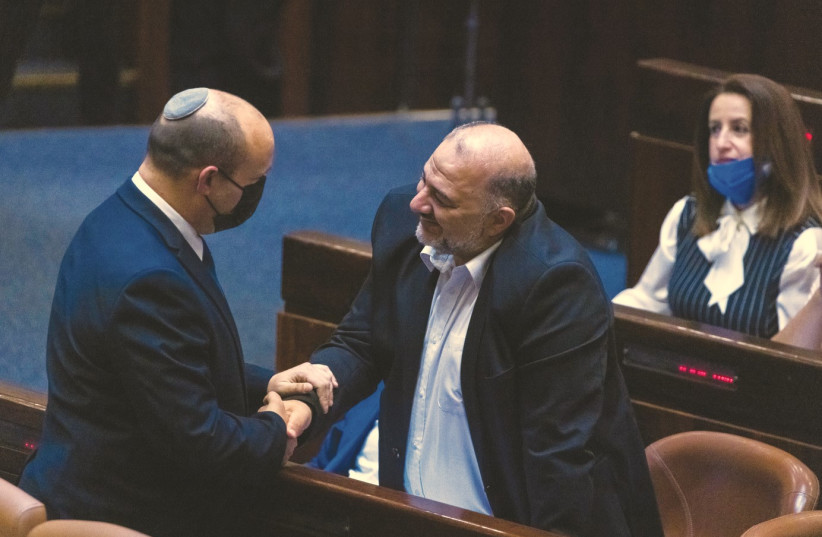Ra’am Party leader MK Mansour Abbas rejected the claim that the State of Israel was guilty of the crime of apartheid within its sovereign borders.
“I would not call it apartheid,” he said during a virtual talk he gave at the Washington Institute for Near East Policy on Thursday.
He defended his position by pointing out the obvious: that he leads an Israeli-Arab party that is a member of the government’s coalition.
“I am within the coalition,” he said, adding that the option also exists for Israeli-Arabs to be ministers in the government.
He was quizzed about the issue during his talk, in light of Amnesty International’s report last month which accused Israel of apartheid both within sovereign Israel and within the West Bank and Gaza. Human Rights Watch and the Israeli NGO B’Tselem have made similar claims.

Abbas was asked if he felt the term apartheid aptly described the relationship between Arabs and Jews within sovereign Israel.
He responded that he was not a fan of exploring the situation from the broad macro-level such as apartheid or racism, but preferred instead to take a hands-on approach to solve discrimination at the micro-level.
Such accusations do not help resolve the issues, he said, adding that reports such as the one published by Amnesty and others outline areas of discrimination that should be addressed.
“This is an opportunity for us to look at what is happening and to be introspective, to see what we can fix and change,” he said.
“I do not have the privilege to judge people,” the Ra’am leader said. “But I have the wish, a desire to accomplish this change together with them. I will change, you will change. It is not that I am the good one and you are the bad one. Our fate here is to live together and we can decide how we want to live together.”
When it comes to the larger Israeli-Palestinian conflict, Abbas said that he tends to rely on the framework set by the international community and international law.
“They can describe the situation that exists according to international law, but what is true in my view is not to say what is right or not right, but to do whatever is useful.”
